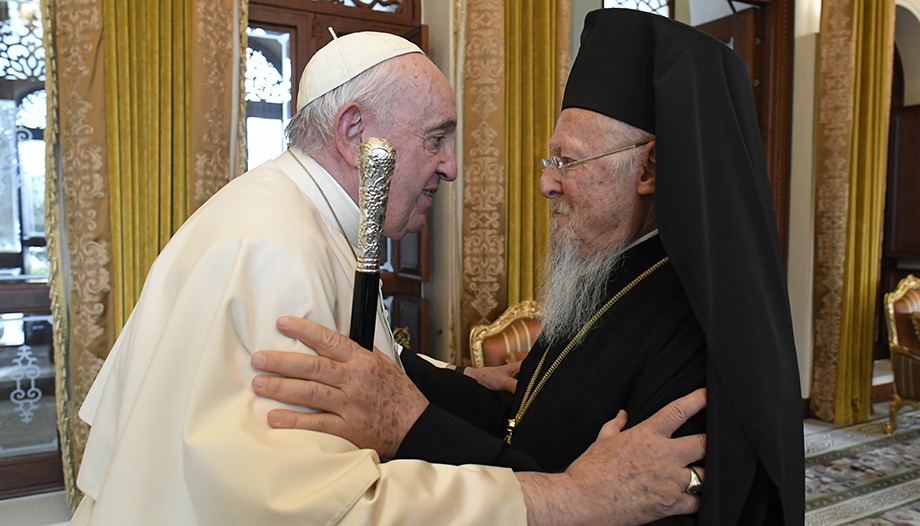"We are preparing ourselves" and "we want to celebrate this Council as brothers." Pope Francis confirmed, in his recent trip to Congo -during the meeting he held with the Jesuit community active in the country and reported in the latest issue of 'La Civiltà Cattolica' - that the work to celebrate the 1700th anniversary of the first Council of Nicaea, scheduled for 2025, is going ahead.
One of the Pontiff's "dreams" is to "reach an agreement on the date of Easter" with his Orthodox brethren, which will coincide with the Jubilee Year of 2025 in the two Churches. The most immediate and also the most open interlocutor is evidently the Ecumenical Patriarch of Constantinople Bartholomew. Among other things, he is the first - after so many centuries - to have participated in the inauguration of the ministry of a Pontiff, in this case that of Pope Bergoglio.
Moment of reconciliation
Already last May, in an audience to the participants of the plenary of the then Pontifical Council for Promoting Christian Unity, Pope Francis mentioned the ongoing "reflection" between the two Churches on how to ecumenically celebrate the important anniversary. And he recalled that already that first event of the whole Church was a moment "of reconciliation", "which in a synodal way reaffirmed its unity around the profession of its faith".
That experience, that "style" and those "decisions", the Holy Father reflected in May, "must illuminate" today's journey and bring to maturity new and concrete steps towards the restoration of the definitive unity of Christians.
Listening to other confessions
In this same line is inserted the invitation that the Dicastery for Promoting Christian Unity, together with the General Secretariat of the Synod, has addressed to the Episcopal Conferences to find a way to listen to the voices of brothers and sisters of other Confessions on questions concerning faith and diakonia in today's world: "if we truly want to listen to the voice of the Spirit, we cannot fail to hear what He has said and says to all who have been born again 'of water and the Spirit' (Jn 3:5)".
And also, in the same direction, it is framed the Ecumenical Prayer Vigil Pope Francis has called for September 30 in St. Peter's Square. The Vigil, whose protagonists will be the young people animated by the Taizé community, is intended to be a moment to entrust to God the work of the Ordinary General Assembly of the Synod of Bishops, which begins in October.
The Ecumenical Footprint of the Jubilee
The other aspect is the Jubilee of 2025. In this case, the value and ecumenical imprint of this important appointment for the universal Church is expected, while the path of preparation wants to focus on the conclusions of another Council, Vatican II, through its four Constitutions (liturgy, revelation, the Church in itself and in its relationship with the world).
Precisely in these days a series of books promoted by the Dicastery for Evangelization entitled "Jubilee 2025 - Notebooks of the Council" has been launched, in whose introduction the Pontiff invites bishops, priests and families to find "the most appropriate ways to make the teaching of the Council Fathers up to date". The time has come, Pope Francis reiterates, "to rediscover the beauty of that teaching, which still today provokes the faith of Christians and calls them to be more responsible and present in offering their contribution to the growth of all humanity".
Prayer
Prayer will therefore be the fixed appointment for the entire year 2024, as a reason to "recover the desire to be in the presence of the Lord, to listen to him and adore him," as well as to thank him for "the many gifts of his love for us and to praise his work in creation," which therefore concerns all humanity.









